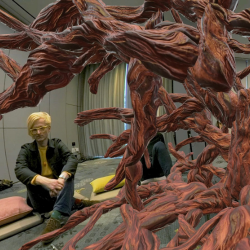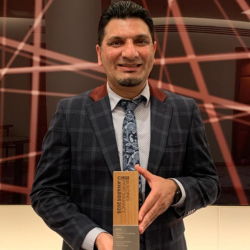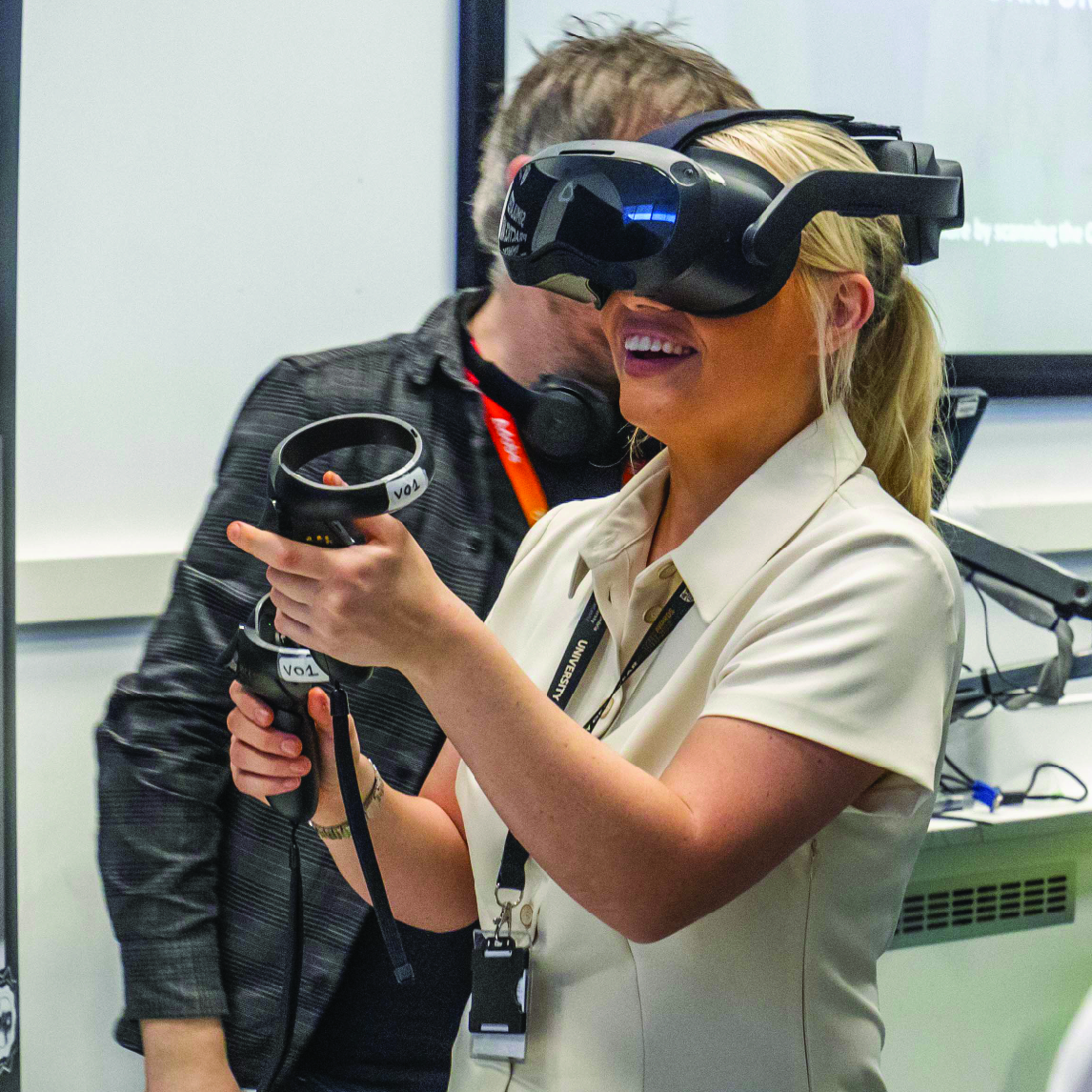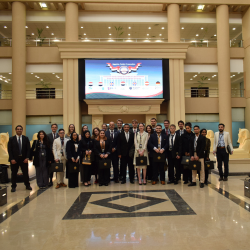-
Study
-
Quick Links
- Course Search
- Unlock Your Potential
- Still time to Apply
- Higher and Degree Apprenticeships
- Continuing Professional Development
- Still time to apply
-
Undergraduate
- Course Search
- Application Guides
- UCAS Exhibitions
- Foundation Years
- Fees and Funding
- School & College Outreach
- Information for Parents
-
Postgraduate
- Course Search
- Application Guide
- Postgraduate Research Degrees
- Flexible Learning
- Fees and Funding
- Change Direction
- Register your Interest
-
Student Life
- Students' Union
- The Hub - Student Blog
- Accommodation
- Northumbria Sport
- Support for Students
-
Experience Northumbria
- Open Days & Events
- Virtual Tours
- Campus Tours
- Life in Newcastle
-
-
International
International
Northumbria’s global footprint touches every continent across the world, through our global partnerships across 17 institutions in 10 countries, to our 277,000 strong alumni community and 150 recruitment partners – we prepare our students for the challenges of tomorrow. Discover more about how to join Northumbria’s global family or our partnerships.
View our Global Footprint-
Quick Links
- Course Search
- Undergraduate Study
- Postgraduate Study
- Information for Parents
- London Campus
- Northumbria Pathway
- Sign up for Information
-
International Students
- Information for Students
- International Events
- Application Guide
- Entry Requirements and Education Country Agents
- Global Offices
- English Requirements
- English Language Centre
- International student support
-
International Fees and Funding
- International Undergraduate Fees
- International Undergraduate Funding
- International Masters Fees
- International Masters Funding
- International Postgraduate Research Fees
- International Postgraduate Research Funding
-
International Partners
- Agent and Representative Network
- Global Partnerships
- Global Community
-
International Mobility
- Information for Northumbria Students
- Information for Incoming Exchange Students
-
-
Business
Business
The world is changing faster than ever before. The future is there to be won by organisations who find ways to turn today's possibilities into tomorrows competitive edge. In a connected world, collaboration can be the key to success.
More on our Business Services -
Research
Research
Northumbria is a research-rich, business-focused, professional university with a global reputation for academic quality. We conduct ground-breaking research that is responsive to the science & technology, health & well being, economic and social and arts & cultural needs for the communities
Discover more about our Research -
About Us
-
About Northumbria
- Our Strategy
- Our Staff
- Place and Partnerships
- Leadership & Governance
- Academic Departments
- University Services
- History of Northumbria
- Contact us
- Online Shop
-
-
Alumni
Alumni
Northumbria University is renowned for the calibre of its business-ready graduates. Our alumni network has over 246,000 graduates based in 178 countries worldwide in a range of sectors, our alumni are making a real impact on the world.
Our Alumni - Work For Us
What will I learn on this module?
You will learn about some of the threshold concepts and key skills that are essential for Real Estate students to grasp before embarking on specialised property research and prepare and promote your employability as a graduate surveyor. The second half of the module is designed to develop your understanding, deployment and critical evaluation of research methods and to prepare you for conducting your own research project.
In the first semester you will undertake an initial project based on a building/site in Newcastle. The learning activities will include lectures to introduce key concepts; seminars to develop your understanding of these key concepts; workshops to apply your knowledge and practice skills; site visits to learn site inspection and measurement skills; guest speakers to provide insight to real estate markets. In the second semester you will learn about research methods and data analysis techniques in two hour workshop sessions in which a research resources will be signposted, research philosophies explored, data collection techniques evaluated and your own research skills and development reflected upon.
An indicative outline syllabus is as follows:
• Real Estate sectors and the role and professionalism of surveyors in global real estate markets
• Real Estate research and resources
• Property appraisal, professional report writing and presentation
• Individual skills audit and developing an action plan
• IT skills for Real Estate
• Philosophies of research and research ethics
• The research process: developing and implementing effective research strategies for data collection
• Quantitative and qualitative data analysis
• The reflective researcher: evaluating research processes and outcomes
How will I learn on this module?
Participating in a shared, student centred experience allows you to get to know your fellow students at the start of the programme to develop new skill sets and through authentic ‘real life’ learning, at the end of which you will have created tangible outputs that will be shared with your peer group. Your learning will initially be task driven, based on the development of a real site/building in the North East, which offers the opportunity for you to interact with external real estate market data and market intelligence. This assessment will be formative in nature, designed to give you useful feedback ahead of your learning journey on the programme.
Learning activities will include:
-Introducing key Real Estate concepts, principles and practice
-Workshops within which to apply knowledge and practice skills:
-Independent learning tutorials
-IT lab sessions to learn how to use software
-Site visits and guest speakers
This will be supplemented by a series of recurrent development workshops where students work on their employment and academic skills in partnership with staff and employment support colleagues in the Graduate Futures Team. This is in order to develop the necessary skills, and attributes, to successfully engage with employers, the recruitment process and the dissertation and advanced practice project option (either live client project or research placement). This is supported by a community of learning where students at different entry points (September and January) engage with one another and support the learning process.
The remainder of the module is taught in two-hour workshops in which you will be able to apply knowledge and understanding though a series of directed tasks. The workshops will encourage discussion and the sharing of opinions around the contested areas of research philosophy, methods, and data analysis. You will reflect on research that you have conducted previously and demonstrate awareness in your own appraisal of your research skills and personal development needs. You will be encouraged to develop your own critique of the research process through review of recent and current research in the discipline area and through active discussion.
How will I be supported academically on this module?
The module team will provide support for students including answering student queries and providing guidance in relation to the module, including its assessment and the student’s academic progress. You can seek support in taught sessions and can also request guidance outside of class time via appointment.
What will I be expected to read on this module?
All modules at Northumbria include a range of reading materials that students are expected to engage with. Online reading lists (provided after enrolment) give you access to your reading material for your modules. The Library works in partnership with your module tutors to ensure you have access to the material that you need.
What will I be expected to achieve?
Knowledge & Understanding:
MLO1. Effectively source, interpret and analyse qualitative and quantitative data.
MLO2. Critically evaluate the concepts and principles of research methodologies and interpret and evaluate research processes and outcomes.
Intellectual / Professional skills & abilities:
MLO3. Conceptualise key real estate concepts and appraise property and develop real estate strategies.
Personal Values Attributes (Global / Cultural awareness, Ethics, Curiosity) (PVA):
MLO4. Apply core principles of sound and justifiable, ethical practice in research.
MLO5. Interpret and evaluate research processes and outcomes and demonstrate the attributes of a reflective researcher.
How will I be assessed?
a. Summative assessment and rationale for tasks
The module will be assessed in one part:
Research Proposal (100%/2000 words): You will create a research proposal based on a topic of your choice
This assessment will address MLOs 1, 2, 4 and 5.
Additional formative assessment:
Formative feedback will be provided by teaching staff during seminar activities and tasks that will enhance learning and understanding of the module topics and will contribute to understanding of the respective assessment assessments. Each workshop session will actively help scaffold the summative assessment, working in partnership with the teaching team to engage with each aspect of the mark scheme. In addition, a formative mock assessment will be set early in the semester to give students an opportunity to learn from feedback and to also be guided towards key data resources including Co-star, Egi, Digimap and planning portals. Both the formative and summative assessments will be guided by templates and exemplar work.
Pre-requisite(s)
None
Co-requisite(s)
None
Module abstract
This module offers you the opportunity to embrace core real estate concepts and employment opportunities (supporting the university’s employment, enterprise, and entrepreneurship strategy) essential to graduate surveyors, and to enhance your key transferable skills by engaging in personal development activities. It is designed to support dissertation study, and transition into Advanced Practice. You will undertake an initial project based on a real building/site in the North East which offers you the opportunity to interact with external real estate market data and intelligence. Learning activities will include lectures introducing key concepts/principles, seminars/workshops within which to apply knowledge and practice skills, site visits and guest speakers. Reinforcing the conceptual learning foundations, learning and assessment will be actively designed in order to support students to develop their academic skills and independent learning. You will be assessed by an individual research proposal and also submit a formative assessment at the beginning of the module to get early feedback on your work. A series of two hour workshops facilitated by a rich variety of people (staff and colleagues from practice), will signpost resources, develop employment strategies, network with employment routes, explore research philosophies, evaluate data collection techniques, and encourage you to reflect on your own research skills and experience.
Course info
Credits 20
Level of Study Postgraduate
Mode of Study 2 years Full Time (with Advanced Practice in the second year)
Department Architecture and Built Environment
Location City Campus, Northumbria University
City Newcastle
Start September 2025 or January 2026
All information is accurate at the time of sharing.
Full time Courses are primarily delivered via on-campus face to face learning but could include elements of online learning. Most courses run as planned and as promoted on our website and via our marketing materials, but if there are any substantial changes (as determined by the Competition and Markets Authority) to a course or there is the potential that course may be withdrawn, we will notify all affected applicants as soon as possible with advice and guidance regarding their options. It is also important to be aware that optional modules listed on course pages may be subject to change depending on uptake numbers each year.
Contact time is subject to increase or decrease in line with possible restrictions imposed by the government or the University in the interest of maintaining the health and safety and wellbeing of students, staff, and visitors if this is deemed necessary in future.
Useful Links
Find out about our distinctive approach at
www.northumbria.ac.uk/exp
Admissions Terms and Conditions
northumbria.ac.uk/terms
Fees and Funding
northumbria.ac.uk/fees
Admissions Policy
northumbria.ac.uk/adpolicy
Admissions Complaints Policy
northumbria.ac.uk/complaints









